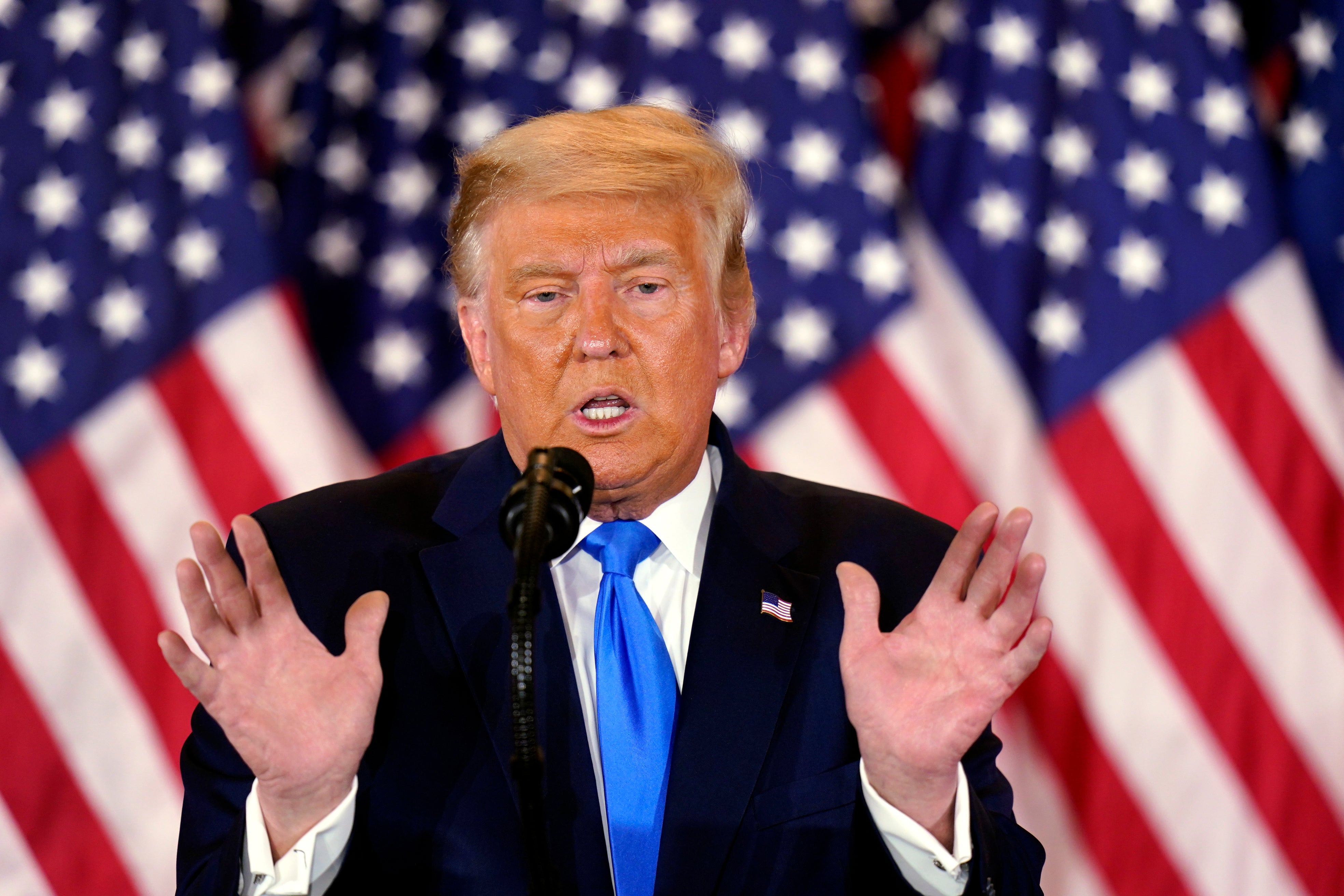Despite Donald Trump’s stubborn, and depressingly characteristic, refusal to accept reality, the days of his presidency are numbered. He will cease to hold the office at noon on 20 January, whether he is at the inauguration of his successor, on the golf course or otherwise engaged.
Given that apparent ebbing away of political power, it seems strange that so many soi-disant respectable Republicans are offering the lame-duck president such vocal, and sometimes unequivocal support. While the craftier ones, such as senate leader Mitch McConnell, leave themselves a little wiggle room, the mood music is mostly defiantly pro-Trump. Mike Pompeo, the secretary of state, perhaps with a hint of a smirk, even envisages the transition to a second Trump term. Marco Rubio, the Florida senator with unbridled ambition, has gone “full Trump”. Rudy Giuliani, former mayor of New York, has gone beyond that, to inhabit some metaphysical place where Mr Trump’s inverted version of the world is made real, and the backyard of a garden services company is the setting for presidential press conferences.
The reason for this unusually high level of loyalty to Donald Trump, a fallen leader, is not hard to discover: it is Donald Trump. The ugly truth is that some years ago Mr Trump performed a successful hostile reverse takeover of the Republican Party, and now it belongs to him. He has since, through three election cycles and the prestige of the presidency itself, turned it into a personality cult. The “base” bears true allegiance to Mr Trump himself, and none other. The protectionist, populist values of Trumpism were once only one set of threads in the fabric of modern Republicanism.
The Tea Party movement, libertarians, evangelical Christians, the gun lobby and social conservatives – all were communities in a party gradually growing more ideological by the decade. Each major Republican presidency (Richard Nixon, Ronald Reagan, George W Bush) saw the party edge further towards the right, and take traditional blue-collar, industrial midwest and southern support for the Democrats. By accident or design, this strategy suited the presidential electoral college: the Republicans have only once won the national popular vote in a presidential contest since 1988.
Now, after the Trump presidency, conservatism, populism and nationalism are the Republican Party’s garish colours, the old internationalism faded beyond recognition.
Without the base and Mr Trump’s endorsement, no Republican candidate can necessarily count on the support of the party and Mr Trump’s fanatical supporters. He has proved himself ruthless and capricious in his use of that power. It is telling that the only major Republican figures to have advised Mr Trump to concede and move on are those with little to fear for their own political futures – former president George W Bush and senator Mitt Romney, who voted to convict Mr Trump during last year’s impeachment trial. Almost every other Republican is beholden to Mr Trump, to one extent or another. Most immediately, the party will need Mr Trump to energise the electoral base in Georgia, with two Senate seats to be contested in run-off elections in January (when Mr Trump will still be president). The Republicans’ hold on the Senate, and thus major areas of policy, depends on them performing well: so Mr Trump still matters.
For better or worse, Mr Trump then acts as kingmaker. Rumours abound that he’d like a comeback in 2024, and the assumption is that that is a matter for him rather than the Republican Party establishment. If he chooses to stand aside then the next nominee will require his blessing. To prevail over members of the Trump dynasty, or indeed win any kind of preferment, they will have to prove themselves Trumpier than Trump himself.
Like an episode of The Apprentice, aspirant Republican senators, governors, former cabinet members and Trump’s own offspring will be competing for his attention and approval. Four years is a long time for such a pattern to continue, and perhaps someone may come along to liberate the Republican Party from the grip of Mr Trump, Trumpism and the Trumpists, but there is no sign of the cavalry yet.





Join our commenting forum
Join thought-provoking conversations, follow other Independent readers and see their replies
Comments